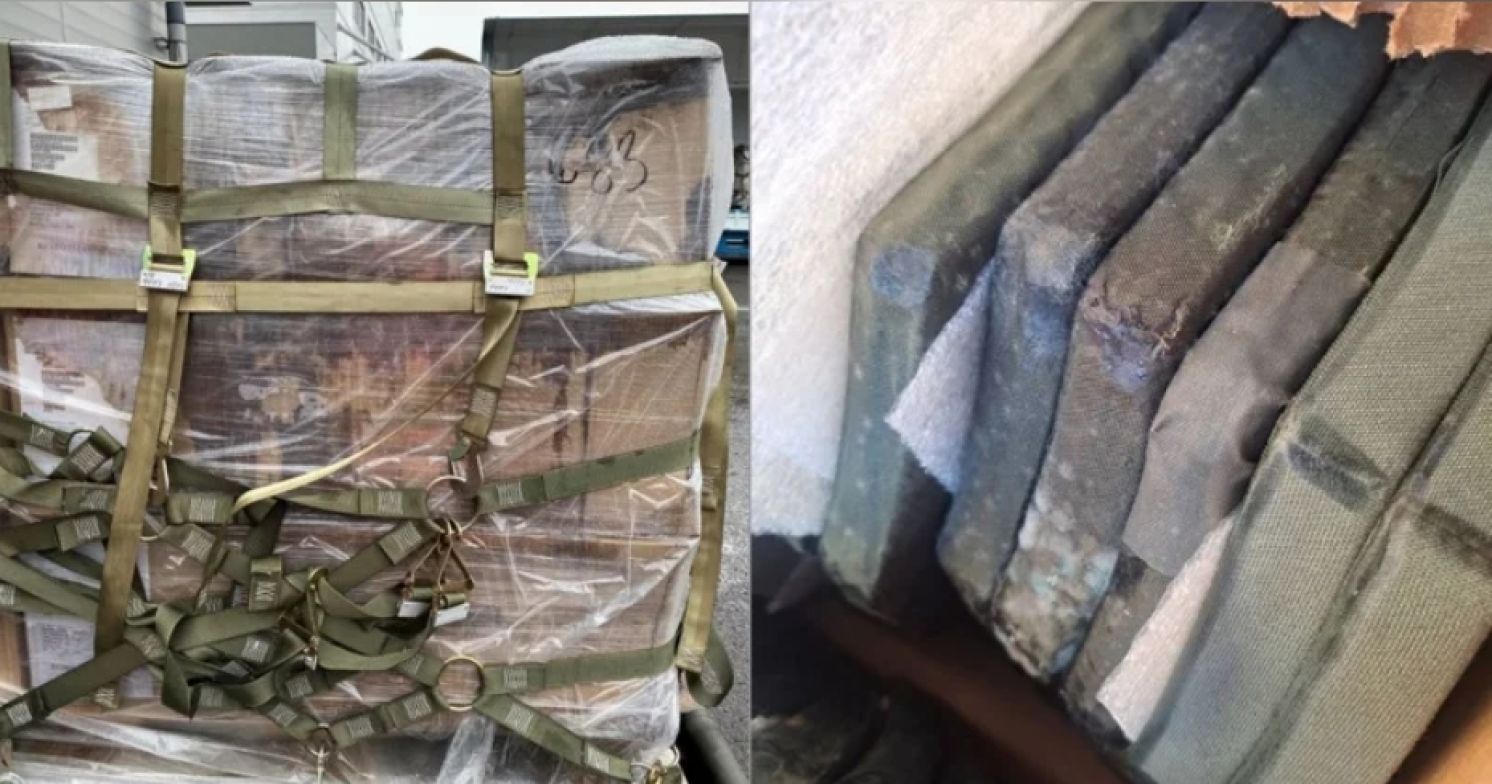
U.S. Military Aid and Arms Sales Unreliable, Lai Administration Should Wake Up
China Times Editorial, September 19, 2024
Since it severed diplomatic relations with the Republic of China in 1979, the United States in 2023 provided military aid to Taiwan for the first time. However, the equipment sent has been described by American personnel as "discarded junk." Additionally, the delivery of F-16V fighter jets to Taiwan has been delayed again. The repeated mishaps in American arms sales and military aid to Taiwan not only embarrass the Democratic Progressive Party (DPP) administration, which has long believed in the firmness of American security promises, but also negatively impact Taiwan’s national security and defense strategies. If it weren’t for the Department of Defense publicly acknowledged that it had shipped "unusable and poorly packaged equipment" to Taiwan, the public would still be unaware of the facts. Meanwhile, the security team, Ministry of Foreign Affairs, and Ministry of National Defense in the administration of President Lai Ching-te have remained silent, unwilling to face up to the reality.
In July 2023, the administration of President Joe Biden in the United States announced the activation of the Presidential Drawdown Authority (PDA), offering Taiwan $345 million in military aid from U.S. reserves. Taiwan’s Ministry of National Defense expressed gratitude for the firm security commitment by the United States, regarding the PDA as another vital tool supporting Taiwan’s self-defense alongside regular arms sales. There were high hopes in Taiwan at the time, with media reports even suggesting that Taiwan would enjoy similar treatment to Ukraine.
The Biden administration further proposed, for the first time, $100 million in "Foreign Military Financing" for Taiwan and an additional $500 million under the PDA in the 2025 fiscal budget. The U.S. Department of State called this a historic investment, showcasing a commitment to Taiwan’s security. Taiwan’s Ministry of Foreign Affairs warmly responded, highlighting American support for Taiwan’s defense and deterrence capabilities.
However, these decisions have sparked criticism, with many questioning whether the United States aims to alleviate the backlog of nearly $20 billion in arms sales to Taiwan. Critics argue that the $345 million in aid is too small to be meaningful, that Taiwan has no say in the aid it receives (as it is entirely decided by the United States), and that the United States wants to demonstrate that supporting Ukraine does not hinder its commitment to Taiwan.
It has since been revealed that the United States supplied Taiwan with 2.7 million expired bullets from 1983, ill-fitting bulletproof vests unsuitable for the Asian body type, and 3,000 moldy bulletproof plates. Tactical vests were also damp and covered in mold due to exposure to sun and rain during transport. U.S. officials acknowledged that providing Taiwan with such non-operational equipment undermines the Department of Defense’s security cooperation goals and could erode confidence in the United States.
In stark contrast, the United States has provided Ukraine with $55.7 billion in military aid since Russia's invasion in February 2022, including $25.6 billion in military assistance through 53 emergency PDA authorizations. This aid includes advanced air defense systems and various weaponry, whereas Taiwan has had to purchase its military equipment, with many deliveries facing significant delays.
The disparity between how the United States treats Ukraine and Taiwan is glaring. The notion of equal treatment is mere self-deception. The bigger concern is not just the quantity, but the dismissive attitude shown by the United States towards Taiwan. Taiwan seems to be treated as a second-class partner, raising doubts about American resolve and ability to support Taiwan.
According to the Cato Institute, which tracks American arms sales to Taiwan, as of August, there remains a backlog of $20 billion worth of weapons awaiting delivery. The largest items include $8 billion for F-16C/D jets, $2 billion for Abrams tanks, $2.37 billion for Harpoon coastal defense systems, $1 billion for HIMARS rocket systems, and Stinger missiles. Taiwan is frustrated with the execution of American military aid, especially with significant delays in major arms sales like the F-16 jets, which have created a structural problem, affecting Taiwan’s ability to bolster its deterrence capabilities. The DPP administration remains helpless in dealing with the "American father" while presenting an overly optimistic view to its citizens.
On September 16, the U.S. Department of Defense announced a $228 million arms sale to Taiwan for spare parts and technical support for fighter jets. Taiwan’s government immediately thanked the United States for fulfilling its security commitments and stressed that this would help its military respond to China's gray zone incursions. However, military experts note that recent U.S. arms sales to Taiwan mostly involve small-scale parts, ammunition replenishments, and technical support. The president of the U.S.-Taiwan Business Council, Rupert Hammond-Chambers, bluntly stated that since 2020, American support for modernizing Taiwan's military has halted.
The Lai administration's insistence on pragmatic Taiwanese independence has driven cross-strait relations to a dead-end. Apart from strengthening its own military, Taiwan’s national security relies heavily on American support and the Indo-Pacific regional anti-China framework led by the United States. However, experts argue that the bipolar power structure in the Indo-Pacific will remain unchanged, and both Washington and Taipei have overestimated the capabilities and determination of countries like Japan, India, and Australia in countering China. The DPP has boxed itself into a corner, with unconditional American support being its only option. Yet even American officials are concerned that delays in executing arms sales and military aid could erode confidence in the United States. It is time for the Lai administration to wake up!
From: https://www.chinatimes.com/opinion/20240919004785-262101?chdtv